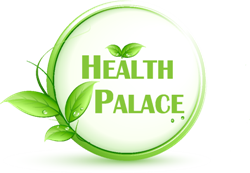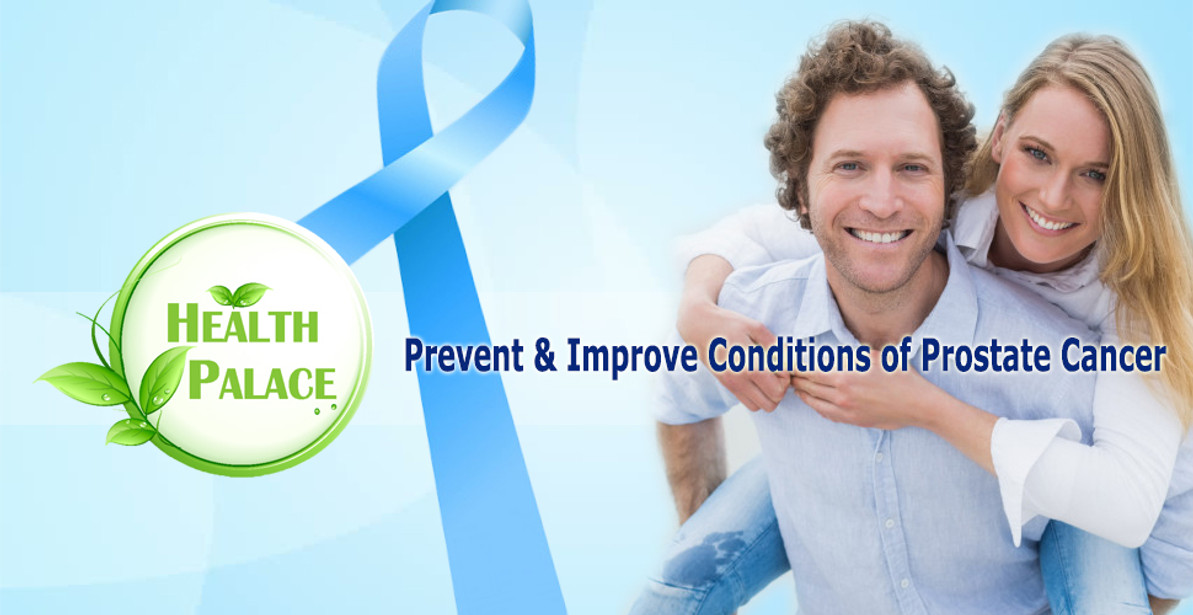10 Best Supplements for Prostate Health | How to Prevent Prostate Cancer Naturally?
Prostate related conditions and prostate cancer affect a large group of men every year. New data reveals that many men have underlying prostate cancer without even knowing it. Some types of prostate cancer are usually slow-growing and it can be years before symptoms become a problem. Evidence based studies provide a number of effective methods to slow prostate cancer progression, improve post surgery conditions, as well as offering preventive solutions. More specifically, advancements in Integrative and complementary medicine research provide promising results in protecting against prostate cancer, inhibiting its development or progression, reducing treatment side effects, enhancing treatment outcomes, and recovering from post surgical conditions.

What is the prostate gland and prostate cancer?
Prostate gland is a part of the male reproductive system. It produces and stores the fluid part of the semen and plays a role in urine control. Prostate gland is about 3 cm in diameters and located in the pelvis, under the bladder. The prostate requires androgen (male hormone) known as testosterone to function properly. Because of its location, prostate conditions are usually accompanied by urinating and sexual performance problems.
While majority of the prostate tumors grow slowly, some may grow rapidly. Prostate cancer cells may spread to the near organs, such as bladder, bones, and lymph nodes.
Most prostate cancers are classified as glandular cancers (adenocarcinomas) and results from mutation of the normal semen producing cells. Initially these small group of cells remain restricted within the normal cells. This condition is known as prostatic intraepithelial neoplasia (PIN). Nearly 50% of all men over the age of 50 may have PIN. While there is not enough evidence to prove PIN initializing prostate cancer, close associations has been established. Usually low-grade PIN is not a cause for concern, however it make sense to consider preventative steps.
Risk factors of prostate cancer include aging, obesity, certain diseases, family history, race, a diet high in saturated fat, processed meat, high fat dairy products, alcohol, vitamin D deficiency, exposure to certain toxins and medications, history of STD infection, and Inflammation (prostatitis).
PSA screening, PCA3 test which is examining the urine for the PCA3 gene only found in prostate cancer cells, ultrasound, MRI and biopsy are the diagnostic steps taken to gather more information to evaluate the health of prostate and the urinary tract.
Some prostate cancers may not require a treatment specially the low grade, slow growing forms in elderly men whom may have other health conditions, instead a watchful waiting approach is taken which may include palliative or active surveillance strategies.
Prostate cancer treatment guidelines for specific clinical situations requires a good estimation of a person's long-term life expectancy and the stage of the disease. Treatment options include; prostatectomy method though which the gland is surgically removed - Robotic keyhole new method of surgery is more precise with less recovery time- variation of radiation therapy, chemotherapy, cryosurgery, hormonal therapy, or some combination.

How to reduce the risk of prostate cancer?
Try to stay away from processed food, especially processed meat like sausage, and hot dogs. High temperature cooking techniques such as broiling and grilling cause formation of HCA compounds (heterocyclic amines) which have been linked to a variety of cancers. Consider lean poultry, wild fish, legumes, nuts, antioxidant reach foods or super foods instead.
According to researches published in journal of nutrition, consuming a large number of dairies especially high fat dairy products such as whole milk, full fat cheese, butter, ice cream, cream cheese, and other similar products contribute to the progression of prostate cancer cells. Try to limit dairy consumption, or at least pick the low fat or non dairy options. Avoid saturated fats, replace them with healthy unsaturated fats like avocado, fish, olive, etc.
Data from more than 10,000 men participating in the Prostate Cancer Prevention trial, indicated that heavy alcohol drinkers were twice as likely to be diagnosed with advanced prostate cancer. Heavy drinkers are defined as those who consume more than three drinks a day or more than 20 drinks a week. Non alcoholic beers and wines, and alcohol free versions of the favorite cocktails are a great way of reducing alcohol consumption.
Limit exposure to environmental toxins and pesticides. For instance high level cadmium is caused by cigarette smoking and some occupational exposures such as welders, metal workers, or those who make cadmium products such as batteries or plastics. Environmental toxic estrogen like bisphenol A is found in polycarbonate plastic; Bisphenol A can also be found in farm-raised fish.
Be proactive, prevention and inhibition of prostate cancer can include a number of lifestyle actions. Various complementary medicine options, and nutrients have been shown to be effective in removing cancer causing toxins, improving the immune function, protecting against prostate cancer and inhibiting its development or progression.
Which kind of complementary medicine can help?
Recent data from research on wide range of phyto nutrients, nutrition, antioxidants, minerals, vitamins, homeopathic medicine, and acupuncture is indicative of their beneficial and complementary role in preventing prostate conditions and improving state of health. These methods are safely and effectively being employed along with the usual treatment options and /or used to help prevent or attenuate prostate cancer development.
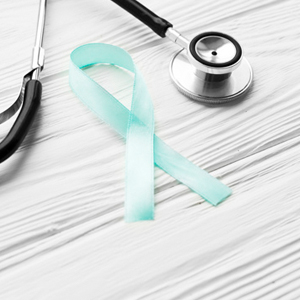
How complementary medicine may help to prevent prostate cancer?
During the past two decades, there has been an increase in the use of complementary medicine for neoplastic diseases and that has led to more research. More and more data is confirming the benefits of using complementary medicine.
For instance, nowadays it is more evident that nutrition, preventing deficiencies, keeping hormone balance are the first defence against prostate cancer.
Published scientific studies suggest a range of nutrients that have been found to help reduce risk of prostate cancer. These nutrients act via different mechanisms to inhibit the development and progression of prostate cancer and/or induce cancer cell apoptosis (cell destruction).
Results from controlled clinical trials have shown effectiveness of using particular nutrients in men who failed initial treatment for prostate cancer.
More data from European countries has shown that homeopathic treatment has been more frequently used in conjunction with and/or prior to the usual treatments. 30% of all the referrals to the homeopathic hospital in the Uk come from oncologists. While homeopathy has been used as an effective palliative and supportive treatment, new evidence suggests that certain homeopathic remedies may provide anticancer properties and could be beneficial in symptom management, in reducing treatment related side effects, as well as in helping to strength the immune system and improving general well being.
Aging men, now have access to more possibilities and opportunity to reduce their risk for prostate cancer, as well as other degenerative diseases.
Which nutrients can help to reduce risk of prostate cancer?
Phytochemical known as DIM derived from cruciferous vegetables (such as broccoli, kale, cauliflower, and Brussels sprouts) have shown promising results in inhibiting prostate cancer in experimental models.
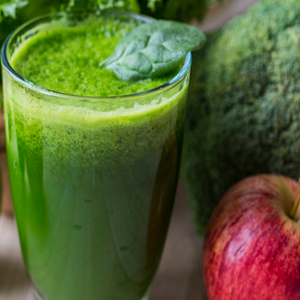
Dim is shown to inhibit the phosphorus-transferring enzyme Akt, as well as the master DNA-transcription regulator nuclear factor-kappaB (NF-kB); also to block the communication or signaling between them. Through these mechanisms DIM stops cell growth and induces apoptosis (cell death) in prostate cancer cells while it does not impact the normal prostate epithelial cells. The ability of DIM to target abnormal epigenetic changes along with its detoxifying power for carcinogens, make it an effective and beneficial factor to be employed at any stage of the prostate condition.
Several clinical trials have been conducted to evaluate the tolerability and safety of DIM in men with or at high risk for prostate cancer. In a pre-surgical protocol, short-term administration of DIM (100 or 200 mg twice daily) was well-tolerated in 45 patients with prostate cancer. Similarly, daily oral administration of 900 mg DIM for three months was well-tolerated by men with prostatic intraepithelial neoplasia (PIN). Taken in supplement form, DIM by itself cannot be absorbed properly by the human body. Microencapsulated DIM complex has shown to provide significant oral bioavailability. All published clinical trials examining DIM have only used microencapsulated DIM complex.
Curcumin has been widely studied for its anticancer properties. Curcumin is a multifunctional compound which induces the cancerous cell apoptosis (cell death), impacts the spread of cancer cells, and regulates inflammatory responses through the master regulator nuclear factor-kappaB (NF-kB) which is a protein complex that controls the DNA transcription. Natural molecules that inhibit NF-kB can limit inflammation.
Prostate cancer cells are often dependent on the androgen hormones to grow. Curcumin is shown to reduce the expression androgen receptors and androgen receptor-related cofactors in the prostate. This interferes with what the cancer cells are depending on to grow.
Both in vitro and in vivostudies demonstrate that curcumin inhibits prostate cancer promotion by blocking metastases of cancer cells in the prostate, and by regulating those necessary enzymes required to invade the tissues.
In certain human prostate cancer cell lines, curcumin could completely inhibit a type of phosphorus-transferring enzyme known as Akt (or protein kinase B orPKB), which is suggested to be one of the mechanism through curcumin can limit the cancer cells growth. In vivo curcumin has been also shown to inhibit angiogenesis in prostate cancer cells.
Curcumin's effectiveness is greatly depends on its absorption and sustainability in plasma. Only bioactive types of curcumin would be actually absorbed and stay in the human body at the level that could provide therapeutic benefits. Regular curcumin extracts even at the 95% extraction would still have poor bioavailability.

Green tea components provide many biological effects, including antitumor and cancer preventive activities. In the search for anticancer agents for prostate cancer the inhibitory effects of green tea components were tested on the prostate cancer cell lines. (EGCG) proved to be the most potent catechin at inhibiting cell growth. EGCG induced apoptotic cell death which was observed by changes in nuclear and DNA.
In an in vivo study of human prostate cancer cells, green tea polyphenols and its major constituent, epigallocatechin-3-gallate (EGCG) were found to be able to re-activate epigenetically silenced genes in cancer cells that were supposed to control cells from becoming invasive and migrant.
Green tea catechins (GTCs) are proven to be effective in inhibiting cancer growth in several experimental models. Recent studies showed that 30% of men with high-grade prostate intraepithelial neoplasia (HG-PIN) would develop prostate cancer within 1 year after repeated biopsy. In a double blind control study 60 volunteers with HG-PIN where enrolled; After 1 year , only 3% (1 Case) of those who took 600 mg daily of the green tea extract developed a tumor, while in the placebo group 30% ( 9 Cases) were diagnosed with tumor. The International Prostate Symptom Score and quality of life scores of GTCs-treated men with coexistent benign prostate hyperplasia improved, reaching statistical significance in the case of International Prostate Symptom Scores. No significant side effects or adverse effects were documented. Concluding Green tea catechins to be safe and effective for treating pre-malignant cases before progression to prostate cancer.
As a secondary observation, administration of GTCs showed to reduce lower urinary tract symptoms, suggesting that these compounds might also be of help for treating the symptoms of benign prostate hyperplasia.
Administration 1,300 milligrams of green tea polyphenols, mostly EGCG as an adjuvant to prostate cancer patients prior to surgery showed to significantly lower the PSA and other tumor promoters such as vascular endothelial growth factor. Overall results from the clinical trials so far, suggest that the therapeutic window for Green tea catechins intervention is narrow and possibly corresponds to early signs of prostate tissue transformation such as HG-PIN; and inadequate dosage and/or short intervention periods may compromise the therapeutic effect.
In vitro studies suggests that pomegranate extract's effects against prostate cancer cells is via inducing beneficial gene expressions to produce higher proteins which promote cell death; while inhibiting pro-inflammatory, DNA-related protein nuclear factor kappa B (NF-kB) and production of cancer-stimulating androgen receptors in prostate cells. Further lab research has shown that the effect of pomegranate extract against prostate cancer cells is dose dependent.
Later human studies found that administration of pomegranate extract to the patients with biochemical recurrence (BCR) following local therapy for prostate cancer, delayed their PSA doubling time suggesting that could be used safely for adjuvant cancer therapy.

Resveratrol belongs to a group of phyto-chemicals known as Phytoalexins produced in plants as a defense mechanism.
Resveratrol has shown to inhibit prostate cancer at multiple stages of development. In a study that examined the effect of various polyphenols on different types of prostate cancer cells, scientists concluded that resveratrol was the most potent against advanced prostate cancer cells. Resveratrol is shown to be able to modulate estrogen and testosterone activities at both the cellular receptor and genetic levels. Resveratrol modulates growth factors, protects DNA, prohibits cancer-causing chemicals and radiation, works against free radicals and inflammation, and enhances expression of anticancer genes.
Resveratrol lowers the elevated PSA. In a clinical study four days of taking resveratrol resulted in 80% PSA reduction in prostate cancer.
Resveratrol is shown to be able to work inside cancer cells and activate or deactivate genes to limit cancer growth. It activates tumor suppressor genes, other genes that destroy cancer cells, and genes that control the cell cycle; while, suppresses those genes used by cancer cells to communicate with one another; especially since resveratrol exerts its effects without toxicity.
Resveretrol is quite rapidly metabolized by the liver and that has an impact on its bioavailability; however, if sustained resveratrol levels can be achieved in the gastrointestinal tract, there is evidence of a powerful antitumoral effect. Resveretrols activity is seen to be enhanced when taken with Curcumin and quercetin or other member of phytoalexins known as Pterostilbene. General suggested dose for resveratrol is between is 20 to 250 mg daily.
Modified citrus pectin is the bio available form pectin fiber from the citrus plants. Modified citrus pectin is water soluble and can attach to certain molecules.
Modified citrus pectin (MCP) is an effective inhibitor of galectin-3 (Gal-3), which is correlated with tumor progression, proliferation, angiogenesis, and apoptosis. A small study indicated that modified citrus pectin can increase the PSA doubling time in men with prostate cancer who did not respond to localized treatment.
Clinical trials suggest that MCP significantly reduced the invasive and migratory potential of prostate cancer cells. Modified citrus pectin (MCP) is an effective inhibitor of galectin-3 (Gal-3), which is correlated with tumor progression, proliferation, angiogenesis, and apoptosis.
Radio-resistance cancer cells are major cause of decreasing the efficiency of radiotherapy for prostate cancer, however clinical studies show using MCP in conjunction with radiotherapy enhances the treatment outcome suggesting that MCP is a radiosensitizer for prostate cancer cells and help to reduce clinical IR dose.
Modified citrus pectin supplements should be taken without food and the suggested dosage is 5 to 15 grams per day.
Vitamin D impacts at least 200 human genes that are involved in regulating cell proliferation, development, and apoptosis. Numerous studies have shown that vitamin D status has a direct effect on cancer risk. In recent years, a multitude of studies have shown cancer risk reductions of 50% and greater based on higher vitamin D status. Men who have higher levels of vitamin D, have a lower risk of prostate cancer. Blood testing determines the appropriate dosages, which could range from 2,000 IU to 10,000 IU daily for prevention.
Low Coenzyme Q10 (CoQ10 or Q10) is often seen in patients with a variety of cancer types. Several published animal and human studies have demonstrated that supplementing with CoQ10’s provide great effects against some cancers.
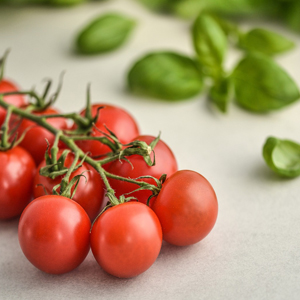
Based on the clinical studies on prostate cancer patients, lycopene supplementation helps to decrease the growth of prostate cancer. Healthy men with the highest blood lycopene levels are shown to have a 60% reduced risk of developing prostate cancer.
Scientific research suggests that lycopene works by reducing oxidative stress in prostate tissue; lowering inflammation; preventing DNA damage; modulating expression of androgen receptors; and it may block cancer cells growth by interfering with cancer cell communication. Lycopene also may help to slow down angiogenesis (formation of new blood vessel) around cancer cells.
Body only requires a tiny amount of selenium, however, its blood levels decrease with age which contributes to deficiencies. Lower levels of selenium in the blood can correspond to an increased risk of an enlarged prostate, the condition known as benign prostatic hyperplasia (BPH). Lower selenium levels were also found to enhance risk of prostate cancer by 4-5 times. Luckily, taking selenium supplement has been shown to reduce risk of prostate cancer up to 63%. This appears to be related to an antiproliferative effect, by modulating cell-cycle regulators. More research suggests that selenium's efficiency would be higher when combined with gamma-tocopherol, an isomer of vitamin E.
Total zinc level in the prostate is much higher than in other soft tissues in the body, and it is found to be significantly lower in those with prostate cancer have been shown to have exceedingly low levels of zinc in the prostate. Apparently prostate cancer cells lose their ability to accumulate zinc. Although zinc supplementation helps to reduce the risk of prostate cancer, it is shown to be most helpful to reduce risk of advanced prostate cancer.
Milk thistle has been studied for its protective properties against prostate cancer, active ingredients including isosilybin, silibinin, and silymarin. Both silibinin and silymarin and are strong antioxidants and inhibit human carcinoma cell growth and DNA synthesis, and angiogenesis.
Saw palmetto (Serenoa repens or Sabal serrulata) is one of the most widely used for BPH (benign prostatic hyperplasia). Evidently saw palmetto also has biological activity in prostate cancer cells and may defend against prostate cancer. Saw palmetto extract was shown to inhibit the activity of 5-alpha-reductase, an enzyme that converts testosterone to the most potent androgen and that is involved in the pathway of prostate cancer. Saw palmetto also appears to have anti-inflammatory properties with a tendency to promote apoptosis (cell death) in prostate cancer cells. In vitro saw palmetto extract reduced the expression of cyclooxygenase-2 (COX-2). Cox 2 is form of biological booster for cancer cells to hyperproliferate.
Beta-sito-sterol is a type of plant fat (phytosterol) that has been found to block the growth of prostate cancer cells. A study on an androgen-dependent prostate cancer cells showed that beta-sitosterol decreased cancer cell growth by 24% and induce apoptosis up to 4 times.
NAC is an antioxidant and it promotes metabolism of glutathione (a potent antioxidant) . In in-vitro studies, NAC found to significantly inhibit androgen-independent prostate carcinoma cells (PC-3 cells) in a dose and time dependent manner, suggesting NAC may be of benefit in the management of prostate cancer. NAC has high potential to attenuate migration of human prostate cancer cells and to suppress the growth of primary and secondary tumors. NAC is usually available in 600 mg dose but higher dosages may be needed for adjuvant cancer therapy.
High blood levels of the omega-3 fatty acids DHA and EPA (docosahexaenoic acid and eicosapentaenoic acid) have been shown to correspond to a lower risk of developing prostate cancer. EPA down regulates inflammation and it has also been found to play a role in inhibiting uPA (urokinase-type plasminogen activator) which is believed to take part in prostate cancer invasion and metastasis. Suggested dosages are 2-4 grams of omega 3 to provide 700-1,400 mg of EPA and 500-1,000 mg of DHA, daily with food.

Cancer is caused by genetic mutations, so it makes sense to prevent such cell damage. Antioxidants compounds prevent damage to cells caused by free radicals. Free radicals are highly reactive and take electrons from other molecules in an effort to achieve molecular stability. Taking electrons from DNA molecules cause damage which partly contributes to aging as well as mutations.
Systemic inflammation has been shown to contribute to cancer and many other health conditions. Hydrogenated oils, processed food, saturated fats, dairy and simple sugars are contributors to inflammation. Complementary medicine provides verity of very effective ways to lower inflammation.
Toxins accumulate in tissues and interfere with the ability to heal. It is highly recommended to identify those toxins and eliminate them without interrupting health. Complementary medicine offers safe methods to eliminate toxins while preserving healthy tissues and cells.
Cancer treatment such as chemotherapy severely weaken the immune system. Well balanced diet and replenishing nutrients would be essential to restore immune health.
Lifestyle changes may affect the progression of early, low grade prostate cancer in men. Treatment of prostate cancer is difficult and somewhat controversial. Therefore, strategies that could enhance primary prevention are invaluable. The efficacy of each or combination of complementary medicines as an adjuvant to the regular treatment depends on variety of factors including patients overall health, the stage of the disease and the method of the treatment.
Articles and products featured by Health Palace are collected from a variety of sources and are provided as a service by Health Palace. These newsletters, while of potential interest to readers, do not necessarily represent the opinions nor constitute the advice of Health Palace. Presented materials are only for information purposes and do not intent to treat, cure, or prevent any disease.
Related Articles:
Keep a Healthy Testosterone Level in Adult Men
Simple yet Important Nutrients Men Should Include in Their Daily Routine
How To Improve Conditions of Obesity In Men ?
Select references:
1.Prostate Cancer Treatment (PDQ) – Health Professional Version. National Cancer Institute. 2014-04-11. Archived from the original on 5 July 2014. Retrieved 1 July 2014.
2.World Cancer Report 2014. World Health Organization. 2014. pp. Chapter 5.11. ISBN 9283204298.
3.Prostate Cancer. National Cancer Institute. Archived from the original on 12 October 2014. Retrieved 12 October 2014.
4.Miller DC, Hafez KS, Stewart A, Montie JE, Wei JT (September 2003). "Prostate carcinoma presentation, diagnosis, and staging: an update form the National Cancer Data Base". Cancer. 98 (6): 1169–78. doi:10.1002/cncr.11635. PMID 12973840.
5.Zeegers MP, Jellema A, Ostrer H (2003). "Empiric risk of prostate carcinoma for relatives of patients with prostate carcinoma: a meta-analysis". Cancer. 97 (8): 1894–903. doi:10.1002/cncr.11262. PMID 12673715.
6.Hankey BF, Feuer EJ, Clegg LX, Hayes RB, Legler JM, Prorok PC, Ries LA, Merrill RM, Kaplan RS (June 16, 1999). "Cancer surveillance series: interpreting trends in prostate cancer—part I: Evidence of the effects of screening in recent prostate cancer incidence, mortality, and survival rates". J Natl Cancer Inst. 91 (12): 1017–24. doi:10.1093/jnci/91.12.1017. PMID 10379964.
7.Steinberg GD, Carter BS, Beaty TH, Childs B, Walsh PC (1990). "Family history and the risk of prostate cancer". Prostate. 17 (4): 337–47. doi:10.1002/pros.2990170409. PMID 2251225.
8.Gallagher RP, Fleshner N (October 1998). "Prostate cancer: 3. Individual risk factors" (PDF). CMAJ. 159 (7): 807–13. PMC 1232741. PMID 9805030. Archived (PDF) from the original on 2009-12-29.
9.Hoffman RM, Gilliland FD, Eley JW, Harlan LC, Stephenson RA, Stanford JL, Albertson PC, Hamilton AS, Hunt WC, Potosky AL (March 2001). "Racial and ethnic differences in advanced-stage prostate cancer: the Prostate Cancer Outcomes Study". J. Natl. Cancer Inst. 93 (5): 388–95. doi:10.1093/jnci/93.5.388. PMID 11238701.
10.Lichtenstein P, Holm NV, Verkasalo PK, Iliadou A, Kaprio J, Koskenvuo M, Pukkala E, Skytthe A, Hemminki K (July 2000). "Environmental and heritable factors in the causation of cancer--analyses of cohorts of twins from Sweden, Denmark, and Finland". N. Engl. J. Med. 343 (2): 78–85. doi:10.1056/NEJM200007133430201. PMID 10891514.
11.Struewing JP, Hartge P, Wacholder S, Baker SM, Berlin M, McAdams M, Timmerman MM, Brody LC, Tucker MA (May 1997). "The risk of cancer associated with specific mutations of BRCA1 and BRCA2 among Ashkenazi Jews". N. Engl. J. Med. 336 (20): 1401–8. doi:10.1056/NEJM199705153362001. PMID 9145676.
12.Beuzeboc P, Soulié M, Richaud P, Salomon L, Staerman F, Peyromaure M, Mongiat-Artus P, Cornud F, Paparel P, Davin JL, Molinié V (December 2009). "[Fusion genes and prostate cancer. From discovery to prognosis and therapeutic perspectives]". Prog. Urol. (in French). 19 (11): 819–24. doi:10.1016/j.purol.2009.06.002. PMID 19945666.
13.Baca, Sylvan C.; Prandi, Davide; Lawrence, Michael S.; Mosquera, Juan Miguel; Romanel, Alessandro; Drier, Yotam; Park, Kyung; Kitabayashi, Naoki; MacDonald, Theresa Y.; Ghandi, Mahmoud; Van Allen, Eliezer; Kryukov, Gregory V.; Sboner, Andrea; Theurillat, Jean-Philippe; Soong, T. David; Nickerson, Elizabeth; Auclair, Daniel; Tewari, Ashutosh; Beltran, Himisha; Onofrio, Robert C.; Boysen, Gunther; Guiducci, Candace; Barbieri, Christopher E.; Cibulskis, Kristian; Sivachenko, Andrey; Carter, Scott L.; Saksena, Gordon; Voet, Douglas; Ramos, Alex H.; Winckler, Wendy; Cipicchio, Michelle; Ardlie, Kristin; Kantoff, Philip W.; Berger, Michael F.; Gabriel, Stacey B.; Golub, Todd R.; Meyerson, Matthew; Lander, Eric S.; Elemento, Olivier; Getz, Gad; Demichelis, Francesca; Rubin, Mark A.; Garraway, Levi A. (April 2013). "Punctuated Evolution of Prostate Cancer Genomes". Cell. 153 (3): 666–677. doi:10.1016/j.cell.2013.03.021.
14.Filson, Christopher P. (8 May 2015). "Expectant management for men with early stage prostate cancer". CA: A Cancer Journal for Clinicians. 65: 265–282. doi:10.3322/caac.21278.
15.Lu-Yao GL, Albertsen PC, Moore DF, Shih W, Lin Y, DiPaola RS, Barry MJ, Zietman A, O'Leary M, Walker-Corkery E, Yao SL (September 2009). "Outcomes of Localized Prostate Cancer Following Conservative Management". The Journal of the American Medical Association. 302 (11): 1202–09. doi:10.1001/jama.2009.1348. PMC 2822438. PMID 19755699.
16.Mongiat-Artus P, Peyromaure M, Richaud P, Droz JP, Rainfray M, Jeandel C, Rebillard X, Moreau JL, Davin JL, Salomon L, Soulié M (December 2009). "[Recommendations for the treatment of prostate cancer in the elderly man: A study by the oncology committee of the French association of urology]". Prog. Urol. (in French). 19 (11): 810–7. doi:10.1016/j.purol.2009.02.008. PMID 19945664.
17.Picard JC, Golshayan AR, Marshall DT, Opfermann KJ, Keane TE (November 2009). "The multi-disciplinary management of high-risk prostate cancer". Urol. Oncol. 30 (1): 3–15. doi:10.1016/j.urolonc.2009.09.002. PMID 19945310.
18.Mohan R, Schellhammer PF (August 2011). "Treatment options for localized prostate cancer". Am Fam Physician. 84 (4): 413–20. PMID 21842788.
19.Mouraviev V, Evans B, Polascik TJ (2006). "Salvage prostate cryoablation after primary interstitial brachytherapy failure: a feasible approach". Prostate Cancer Prostatic Dis. 9 (1): 99–101. doi:10.1038/sj.pcan.4500853. PMID 16314889.
20.Wallis, Christopher J D; Mahar, Alyson L; Choo, Richard; Herschorn, Sender; Kodama, Ronald T; Shah, Prakesh S; Danjoux, Cyril; Narod, Steven A; Nam, Robert K (2 March 2016). "Second malignancies after radiotherapy for prostate cancer: systematic review and meta-analysis". BMJ: i851. doi:10.1136/bmj.i851.
21.Hegarty J, Beirne PV, Walsh E, Comber H, Fitzgerald T, Wallace Kazer M (Nov 10, 2010). Hegarty J, ed. "Radical prostatectomy versus watchful waiting for prostate cancer". Cochrane Database of Systematic Reviews (11): CD006590. doi:10.1002/14651858.CD006590.pub2. PMID 21069689.
22.Sakr WA, Grignon DJ, Haas GP, et al. Epidemiology of high grade prostatic intraepithelial neoplasia. Pathol Res Pract. 1995 Sep;191(9):838-41.
23.Donaldson MS. Nutrition and cancer: a review of the evidence for an anti-cancer diet. Nutr J. 2004 Oct 20;3:19
24.Khan N, Adhami VM, Mukhtar H. Apoptosis by dietary agents for prevention and treatment of prostate cancer. Endocr Relat Cancer. 2010 Mar;17(1):R39-52.
25.Beaver LM, Yu TW, Sokolowski EI, Williams DE, Dashwood RH, Ho E. 3,3’-Diindolylmethane, but not indole-3-carbinol, inhibits histone deacetylase activity in prostate cancer cells. Toxicol Appl Pharmacol. 2012 Sep 15;263(3):345-51.
26.Li Y, Chinni SR, Sarkar FH. Selective growth regulatory and pro-apoptotic effects of DIM is mediated by AKT and NF-kappaB pathways in prostate cancer cells. Front Biosci. 2005 Jan 1;10:236-43.
27.Heath EI, Heilbrun LK, Li J, et al. A phase I dose-escalation study of oral BR-DIM (BioResponse 3,3’- Diindolylmethane) in castrate-resistant, non-metastatic prostate cancer. Am J Transl Res. 2010 Jul 23;2(4):402-11.
28.McLarty J, Bigelow RL, Smith M, Elmajian D, Ankem M, Cardelli JA. Tea polyphenols decrease serum levels of prostate-specific antigen, hepatocyte growth factor, and vascular endothelial growth factor in prostate cancer patients and inhibit production of hepatocyte growth factor and vascular endothelial growth factor in vitro. Cancer Prev Res. (Phila). 2009 Jul;2(7):673-82.
29.Saverio Bettuzzi, Maurizio Brausi, Federica Rizzi, Giovanni Castagnetti, Giancarlo Peracchia and Arnaldo Corti. Chemoprevention of Human Prostate Cancer by Oral Administration of Green Tea Catechins in Volunteers with High-Grade Prostate Intraepithelial Neoplasia: A Preliminary Report from a One-Year Proof-of-Principle Study. DOI: 10.1158/0008-5472.CAN-05-1145 Published January 2006
30.Nagi B. Kumar, Julio Pow-Sang, Kathleen M. Egan, Philippe E. Spiess, Shohreh Dickinson, Raoul Salup, Mohamed Helal, Jerry W. McLarty, Christopher R. Williams, Fred Schreiber Medical Oncology, Howard L. Parnes, Said Sebti, Aslamuzzaman Kazi, Loveleen Kang, Gwendolyn P. Quinn, Tiffany Smith, Binglin Yue, Karen Diaz, Ganna Chornokur, Theresa Crocker and Michael J. Schell. Randomized, Placebo-Controlled Trial of Green Tea Catechins for Prostate Cancer Prevention DOI: 10.1158/1940-6207.CAPR-14-0324. April14,2015.
31.Adrian G, Paschka a, Rachel Butlera, Charles Y.-F, Young ab.Induction of apoptosis in prostate cancer cell lines by the green tea component, (−)-epigallocatechin-3-gallate. doi.org/10.1016/S0304-3835(98)00084-6. August 1998.
32.Eswar Shankar, Natarajan Bhaskaran, Rajnee Kanwal and Sanjay Gupta. American Association for Cancer Research. Green tea polyphenols suppress tumor growth and invasion by targeting matrix metalloproteinases, RECK and TIMP-3, in a mouse model implanted with prostate tumors
33.DOI: 10.1158/1538-7445.AM2017-2225 Published July 2017.
34.Shishodia S, Chaturvedi MM, Aggarwal BB. Role of curcumin in cancer therapy. Curr Probl Cancer. 2007 Jul-Aug;31(4):243-305.
35.Kunnumakkara AB, Anand P, Aggarwal BB. Curcumin inhibits proliferation, invasion, angiogenesis and metastasis of different cancers through interaction with multiple cell signaling proteins. Cancer Lett. 2008 Oct 8;269(2):199-225.
36.Plummer SM, Holloway KA, Manson MM, et al. Inhibition of cyclo-oxygenase 2 expression in colon cells by the chemopreventive agent curcumin involves inhibition of NF-kappaB activation via the NIK/IKK signalling complex. Oncogene. 1999 Oct 28;18(44):6013-20.
37.Teiten MH, Gaascht F, Eifes S, Dicato M, Diederich M. Chemopreventive potential of curcumin in prostate cancer. Genes Nutr. 2010 Mar;5(1):61-74.
38.Nakamura K, Yasunaga Y, Segawa T, et al. Curcumin down-regulates AR gene expression and activation in prostate cancer cell lines. Int J Oncol. 2002;21(4):825-30.
39.Choi HY, Lim JE, Hong JH. Curcumin interrupts the interaction between the androgen receptor and Wnt/beta-catenin signaling pathway in LNCaP prostate cancer cells. Prostate Cancer Prostatic Dis. 2010 Dec;13(4):343-9.
40.Tsui KH, Feng TH, Lin CM, Chang PL, Juang HH. Curcumin blocks the activation of androgen and interlukin-6 on prostate-specific antigen expression in human prostatic carcinoma cells. J Androl. 2008 Nov-Dec;29(6):661-8.
41.Shi Q, Shih CC, Lee KH. Novel anti-prostate cancer curcumin analogues that enhance androgen receptor degradation activity. Anticancer Agents Med Chem. 2009 Oct;9(8):904-12.
42.Hong JH, Ahn KS, Bae E, Jeon SS, Choi HY. The effects of curcumin on the invasiveness of prostate cancer in vitro and in vivo. Prostate Cancer Prostatic Dis. 2006;9(2):147-52.
43.Herman JG, Stadelman HL, Roselli CE. Curcumin blocks CCL2-induced adhesion, motility and invasion, in part, through down-regulation of CCL2 expression and proteolytic activity. Int J Oncol. 2009 May;34(5):1319-27.
44.Du Y et al. Curcumin inhibits cancer-associated fibroblast-driven prostate cancer invasion through MAOA/mTOR/HIF-a1 signaling. International Journal of Oncology 2015 Dec; 47(6): 2064-72
45.Kampa M et al. Wine antioxidant polyphenols inhibit the proliferation of human prostate cancer cell lines. Nutrition and Cancer 2000; 37(2):223-33.
46.Chaudhary LR, Hruska KA. Inhibition of cell survival signal protein kinase B/Akt by curcumin in human prostate cancer cells. J Cell Biochem. 2003;89(1):1-5.
47.Dorai T, Cao YC, Dorai B, Buttyan R, Katz AE. Therapeutic potential of curcumin in human prostate cancer. III. Curcumin inhibits proliferation, induces apoptosis, and inhibits angiogenesis of LNCaP prostate cancer cells in vivo. Prostate. 2001;47(4):293-303.
48.Lansky EP, Newman RA. Punica granatum (pomegranate) and its potential for prevention and treatment of inflammation and cancer. J Ethnopharmacol. 2007;109(2):177-206
49.Malik A, Afaq F, Sarfaraz S, Adhami VM, Syed DN, Mukhtar H. Pomegranate fruit juice for chemoprevention and chemotherapy of prostate cancer. Proc Natl Acad Sci USA. 2005 Oct 11;102(41):14813-8.
50.Sineh Sepehr K, Baradaran B, Mazandarani M, Khori V, Shahneh FZ. Studies on the cytotoxic activities of Punica granatum L. var. spinosa (Apple Punice) extract on prostate cell line by induction of apoptosis. ISRN Pharm. 2012;2012:547942.
51.Heber D. Multitargeted therapy of cancer by ellagitannins. Cancer Lett. 2008 Oct 8;269(2):262-8.
52.Hong MY, Seeram NP, Heber D. Pomegranate polyphenols down-regulate expression of androgen-synthesizing genes in human prostate cancer cells overexpressing the androgen receptor. J Nutr Biochem. 2008 Dec;19(12):848-55.
53.Gerber GS. Phytotherapy for benign prostatic hyperplasia. Curr Urol Rep. 2002 Aug;3(4):285-91.
54.Wang L et al. Pomegranate and its components as alternative treatment for prostate cancer. International Journal of Molecular Science 2015 Aug 25; 15(9): 14949-66
55.Wilt TJ, Ishani A, Rutks I, MacDonald R. Phytotherapy for benign prostatic hyperplasia. Public Health Nutr. 2000 Dec;3(4A):459-72.
56.Jang M, Pezzuto JM. Cancer chemopreventive activity of resveratrol. Drugs Exp Clin Res. 1999;25(2-3):65-77.
57.Jang M, Cai L, Udeani GO, et al. Cancer chemopreventive activity of resveratrol, a natural product derived from grapes. Science. 1997 Jan 10;275(5297):218-20.
58.Aggarwal BB, Bhardwaj A, Aggarwal RS, Seeram NP, Shishodia S, Takada Y. Role of resveratrol in prevention and therapy of cancer: preclinical and clinical studies. Anticancer Res. 2004 Sep-Oct;24(5A):2783-840.
59.Kampa M, Hatzoglou A, Notas G, et al. Wine antioxidant polyphenols inhibit the proliferation of human prostate cancer cell lines. Nutr Cancer. 2000;37(2):223-33.
60.Lu R, Serrero G. Resveratrol, a natural product derived from grape, exhibits anti-estrogenic activity and inhibits the growth of human breast cancer cells. J Cell Physiol. 1999 Jun;179(3):297-304.
61.Bettuzzi S et al. Chemoprevention of human prostate cancer by oral administration of green tea catechins in volunteers with high-grade prostate intraepithelial neoplasia: a preliminary report from a one-year proof-of-principle study. Cancer Research 2006 Jan 15; 66(2):1234-40
62.Carter LG et al. Resveratrol and cancer: focus on in vivo evidence. Endocrine Related Cancer 2014 May 6; 21(3): R209-25
63.Seeni A, Takahashi S, Takeshita K, et al. Suppression of prostate cancer growth by resveratrol in the transgenic rat for adenocarcinoma of prostate (TRAP) model. Asian Pac J Cancer Prev. 2008 Jan-Mar;9(1):7-14.
64.Mitchell SH, Zhu W, Young CY. Resveratrol inhibits the expression and function of the androgen receptor in LNCaP prostate cancer cells. Cancer Res . 1999 Dec 1;59(23):5892-5.
65.Hsieh TC, Wu JM. Grape-derived chemo preventive agent resveratrol decreases prostate-specific antigen (PSA) expression in LNCaP cells by an androgen receptor (AR)-independent mechanism. Anticancer Res. 2000 Jan-Feb;20(1A):225-8.
66.Available at: http://www.mskcc.org/cancer-care/herb/resveratrol... Accessed September 11, 2013.
67.Glinsky VV, Raz A. Modified citrus pectin anti-metastatic properties: one bullet, multiple targets. Carbohydr Res. 2009 Sep 28;344(14):1788-91.
68.Inohara H, Raz A. Effects of natural complex carbohydrate (citrus pectin) on murine melanoma cell properties related to galectin-3 functions. Glycoconj J. 1994 Dec;11(6):527-32.
69.Nangia-Makker P, Hogan V, Honjo Y, et al. Inhibition of human cancer cell growth and metastasis in nude mice by oral intake of modified citrus pectin. J Natl Cancer Inst. 2002 Dec 18;94(24):1854-62.
70.Guess BW, Scholz MC, Strum SB, Lam RY, Johnson HJ, Jennrich RI. Modified citrus pectin (MCP) increases the prostate-specific antigen doubling time in men with prostate cancer: a phase II pilot study. Prostate Cancer Prostatic Dis. 2003;6(4):301-4.
71.Pienta KJ, Naik H, Akhtar A, et al. Inhibition of spontaneous metastasis in a rat prostate cancer model by oral administration of modified citrus pectin. J Natl Cancer Inst. 1995;87:348-53.
72.Sefora Conti, MSc, Akiva Vexler, MD, PhD, Lior Hagoel, MSc, Lital Kalich-Philosoph, PhD, Benjamin W. Corn, MD, Nir Honig, Natan Shtraus, MSc, Yaron Meir, BSc, Ilan Ron, MD, PhD, Isaac Eliaz, MD*, Shahar Lev-Ari, PhD*.Modified Citrus Pectin as a Potential Sensitizer for Radiotherapy in Prostate Cancer. https://doi.org/10.1177/1534735418790382. July 25, 2018.
73.Eight homogenous MCP components were purified and chemically analyzed. (MCP-1, −2, −3, and −4) sub-fractions of type-I rhamnogalacturonan-rich pectins (RG-I: MCP-1a, MCP-2a, MCP-3Sa and MCP-4a) and homogalacturonan-rich pectins (HG: MCP-2b, MCP-3Sb, MCP-3P, MCP-4b). Upon analysis of their chemical structures, we found that the RG-I sub-fractions contain (1 → 4)-linked β-D-galactan and (1 → 5)-linked α-L-arabinans or type-I.
74.Guess BW et al. Modified citrus pectin (MCP) increases the prostate-specific antigen doubling time in men with prostate cancer: a phase II pilot study. Prostate Cancer and Prostatic Disease 2003; 6(4): 301-4
75.Abstract 5555: Combined effect of modified citrus pectin and ionizing radiation on survival and metastatic activity of prostate cancer cells Isaac G.Eliaz, SeforaConti, AkivaVexler, BenKoren, NirHonig, NatanShtraus, YaronMeir, ShaharLev-Ari and IlanRon. DOI: 10.1158/1538-7445.AM2015-5555 Published August 2015
76.Saverio Bettuzzi, Maurizio Brausi, Federica Rizzi, Giovanni Castagnetti, Giancarlo Peracchia and Arnaldo Corti. Chemoprevention of Human Prostate Cancer by Oral Administration of Green Tea Catechins in Volunteers with High-Grade Prostate Intraepithelial Neoplasia: A Preliminary Report from a One-Year Proof-of-Principle Study. DOI: 10.1158/0008-5472.CAN-05-1145 Published January 2006
77.Nagi B. Kumar, Julio Pow-Sang, Kathleen M. Egan, Philippe E. Spiess, Shohreh Dickinson, Raoul Salup, Mohamed Helal, Jerry W. McLarty, Christopher R. Williams, Fred Schreiber Medical Oncology, Howard L. Parnes, Said Sebti, Aslamuzzaman Kazi, Loveleen Kang, Gwendolyn P. Quinn, Tiffany Smith, Binglin Yue, Karen Diaz, Ganna Chornokur, Theresa Crocker and Michael J. Schell. Randomized, Placebo-Controlled Trial of Green Tea Catechins for Prostate Cancer Prevention DOI: 10.1158/1940-6207.CAPR-14-0324. April14,2015.
78.Adrian G, Paschka a, Rachel Butlera, Charles Y.-F, Young ab.Induction of apoptosis in prostate cancer cell lines by the green tea component, (−)-epigallocatechin-3-gallate. doi.org/10.1016/S0304-3835(98)00084-6. August 1998.
79.Eswar Shankar, Natarajan Bhaskaran, Rajnee Kanwal and Sanjay Gupta. American Association for Cancer Research. Green tea polyphenols suppress tumor growth and invasion by targeting matrix metalloproteinases, RECK and TIMP-3, in a mouse model implanted with prostate tumors DOI: 10.1158/1538-7445.AM2017-2225 Published July 2017.
80.Kattan MW, Potters L, Blasko JC, Beyer DC, Fearn P, Cavanagh W, Leibel S, Scardino PT. Pretreatment nomogram for predicting freedom from recurrence after permanent prostate brachytherapy in prostate cancer. Urology 2001; 58: 393–9.
81.Shavers VL, Brown ML. Racial and ethnic disparities in the receipt of cancer treatment. J Natl Cancer Inst 2002; 94: 334–57.
82.Vicini FA, Martinez A, Hanks G, Hanlon A, Miles B, Kernan K, Beyers D, Ragde H, Forman J, Fontanesi J, Kestin L, Kovacs G, et al. An interinstitutional and interspecialty comparison of treatment outcome data for patients with prostate carcinoma based on predefined prognostic categories and minimum follow‐up. Cancer 2002; 95: 2126–35.
83.Holick MF. Vitamin D deficiency. N Engl J Med. 2007 Jul 19;357(3):266-81
84.Garland CF, Gorham ED, Mohr SB, et al. Vitamin D and prevention of breast cancer: pooled analysis. J Steroid Biochem Mol Biol. 2007 Mar;103(3-5):708-11.
85.Gorham ED, Garland CF, Garland FC, et al. Vitamin D and prevention of colorectal cancer. J Steroid Biochem Mol Biol. 2005 Oct;97(1-2):179-94.
86.Polesel J, Talamini R, Montella M, et al. Linoleic acid, vitamin D and other nutrient intakes in the risk of non-Hodgkin lymphoma: an Italian case-control study. Ann Oncol. 2006 Apr;17(4):713-8.
87.Shui IM, Mucci LA, Kraft P, et al. Vitamin D-related genetic variation, plasma vitamin D, and risk of lethal prostate cancer: a prospective nested case-control study. J Natl Cancer Inst. 2012 May 2;104(9):690-9.
88.Rusciani L, Proietti I, Rusciani A, et al. Low plasma coenzyme Q10 levels as an independent prognostic factor for melanoma progression. J Am Acad Dermatol. 2006 Feb;54(2):234-41.
89.Folkers K, Osterborg A, Nylander M, Morita M, Mellstedt H. Activities of vitamin Q10 in animal models and a serious deficiency in patients with cancer. Biochem Biophys Res Commun. 1997 May 19;234(2):296-9.
90.Hodges S, Hertz N, Lockwood K, Lister R. CoQ10: could it have a role in cancer management? Biofactors. 1999;9(2-4):365-70.
91.Ren S, Lien EJ. Natural products and their derivatives as cancer chemopreventive agents. Prog Drug Res. 1997;48:147-71.
92.Portakal O, Ozkaya O, Erden IM, et al. Coenzyme Q10 concentrations and antioxidant status in tissues of breast cancer patients. Clin Biochem. 2000 Jun;33(4): 279-84.
93.Ren S, Lien EJ. Natural products and their derivatives as cancer chemopreventive agents. Prog Drug Res. 1997;48:147-71.
94.Wertz K. Lycopene effects contributing to prostate health. Nutr Cancer. 2009;61(6):775-83.
95.Gann PH, Ma J, Giovannucci E, et al. Lower prostate cancer risk in men with elevated plasma lycopene levels: results of a prospective analysis. Cancer Res. 1999;59:1225-30.
96.Obermuller-Jevic UC, Olano-Martin E, Corbacho AM, et al. Lycopene inhibits the growth of normal human prostate epithelial cells in vitro. J Nutr. 2003;133:3356-60.
97.Kucuk O, Sarkar FH, Sakr W, et al. Phase II randomized clinical trial of lycopene supplementation before radical prostatectomy. Cancer Epidemiol Biomarkers Prev. 2001;10:861-8.
98.Eichholzer M, Steinbrecher A, Kaaks R, et al. Effects of selenium status, dietary glucosinolate intake and serum glutathione s-transferase a activity on the risk of benign prostatic hyperplasia. BJU Int. 2012 Dec;110(11 Pt C):E879-85.
99.Lippman SM, Klein EA, Goodman PJ, et al. Effect of selenium and vitamin E on risk of prostate cancer and other cancers: the Selenium and Vitamin E Cancer Prevention Trial (SELECT). JAMA. 2009 Jan 7;301(1):39-51.
100.Jiang Q, Wong J, Ames BN. Gamma-tocopherol induces apoptosis in androgen-responsive LNCaP prostate cancer cells via caspase-dependent and independent mechanisms. Ann NY Acad Sci. 2004 Dec;1031:399-400.
101.Helzlsouer KJ, Huang HY, Alberg AJ, et al. Association between alpha-tocopherol, gamma-tocopherol, selenium, and subsequent prostate cancer. J Natl Cancer Inst. 2000 Dec 20;92(24):2018-23.
102.Lee EH, Myung SK, Jeon YJ, et al. Effects of selenium supplements on cancer prevention: Meta-analysis of randomized controlled trials. Nutr Cancer. 2011 Nov;63(8):1185-95.
103.Brooks JD, Metter EJ, Chan DW, et al. Plasma selenium level before diagnosis and the risk of prostate cancer development. J Urol. 2001 Dec;166(6):2034-8.
104.Helzlsouer KJ, Huang, HY, Alberg AJ, et al. Association between alpha-tocopherol, gamma-tocopherol, selenium, and subsequent prostate cancer. J Natl Cancer Inst. 2000;92:2018-23.
105.Norrish AE, Skeaff CM, Arribas GL, Sharpe SJ, Jackson RT. Prostate cancer risk and consumption of fish oils: a dietary biomarker-based case-control study. Br J Cancer. 1999 Dec;81(7):1238-42.
106.Gómez Y, Arocha F, Espinoza F, Fernández D, Vásquez A, Granadillo V. Zinc levels in prostatic fluid of patients with prostate pathologies. Invest Clin. 2007 Sep;48(3):287-94.
107.Bataineh ZM, Hani IH Bani, Al-Alami JR. Zinc in normal and pathological human prostate gland. Saudi Med Jour. 2002;23(2):218-20.
108.Huang L, Kirschke CP, Zhang Y. Decreased intracellular zinc in human tumorigenic prostate epithelial cells: a possible role in prostate cancer progression. Cancer Cell Int. 2006;6:10.
109.Gonzalez A, Peters U, Lampe JW, White E. Zinc intake from supplements and diet and prostate cancer. Nutr Cancer. 2009;61(2):206-15.
110.Davis-Searles PR, Nakanishi Y, Kim NC, et al. Milk thistle and prostate cancer: differential effects of pure flavonolignans from Silybum marianum on antiproliferative end points in human prostate carcinoma cells. Cancer Res. 2005 May 15;65(10):4448-57.
111.Yang Y, Ikezoe T, Zheng Z, Taguchi H, Koeffler HP, Zhu WG. Saw palmetto induces growth arrest and apoptosis of androgen-dependent prostate cancer LNCaP cells via inactivation of STAT 3 and androgen receptor signaling. Int J Oncol. 2007 Sep;31(3): 593-600.
112.Pais P. Potency of a novel saw palmetto ethanol extract, SPET-085, for inhibition of 5alpha-reductase II. Adv Ther. 2010 Aug;27(8):555-63.
113.Sirab N, Robert G, Fasolo V, et al. Lipidosterolic extract of serenoa repens modulates the expression of inflammation related-genes in benign prostatic hyperplasia epithelial and stromal cells. Int J Mol Sci. 2013 Jul 10;14(7):14301-20.
114.Goldmann WH, Sharma AL, Currier SJ, Johnston PD, Rana A, Sharma CP. Saw palmetto berry extract inhibits cell growth and Cox-2 expression in prostatic cancer cells. Cell Biol Int. 2001;25(11):1117-24.
115.Awad AB, Burr AT, Fink CS. Effect of resveratrol and beta-sitosterol in combination on reactive oxygen species and prostaglandin release by PC-3 cells. Prostaglandins Leukot Essent Fatty Acids. 2005 Mar;72(3):219-26.
116.Lee YJ, Lee DM, Lee CH, et al. Suppression of human prostate cancer PC-3 cell growth by N-acetylcysteine involves over-expression of Cyr61. Toxicol In Vitro. 2011 Feb;25(1):199-205.
117.Supabphol A, Supabphol R. Antimetastatic potential of N-acetylcysteine on human prostate cancer cells. J Med Assoc Thai. 2012 Dec;95 Suppl 12:S56-62.
118.Aucoin M et al. Fish-derived omega-3 fatty acids and prostate cancer: a systematic review. Integrative Cancer Therapy 2016 Jun 29
119.https://doi.org/10.1097/01.ju.0000169487.49018.73
Recent Posts
-
Maintain A Healthy Heart Rhythm With Integrative Medicine
Maintain A Healthy Heart Rhythm With Integrative Medicine;Usually, abnormal heart rate or arrhythmi …4th Feb 2021 -
How To Protect Against COVID-19
Coronaviruses are a large group of viruses that cause many common human and animal infections. In hu …30th Jun 2020 -
How to Prevent Gallstones from Forming? | Natural Supplements for Gallstones
How To Prevent Gallstone Formation?Gallstones are hard deposits made of cholesterol or bilirubin f …4th Mar 2020
